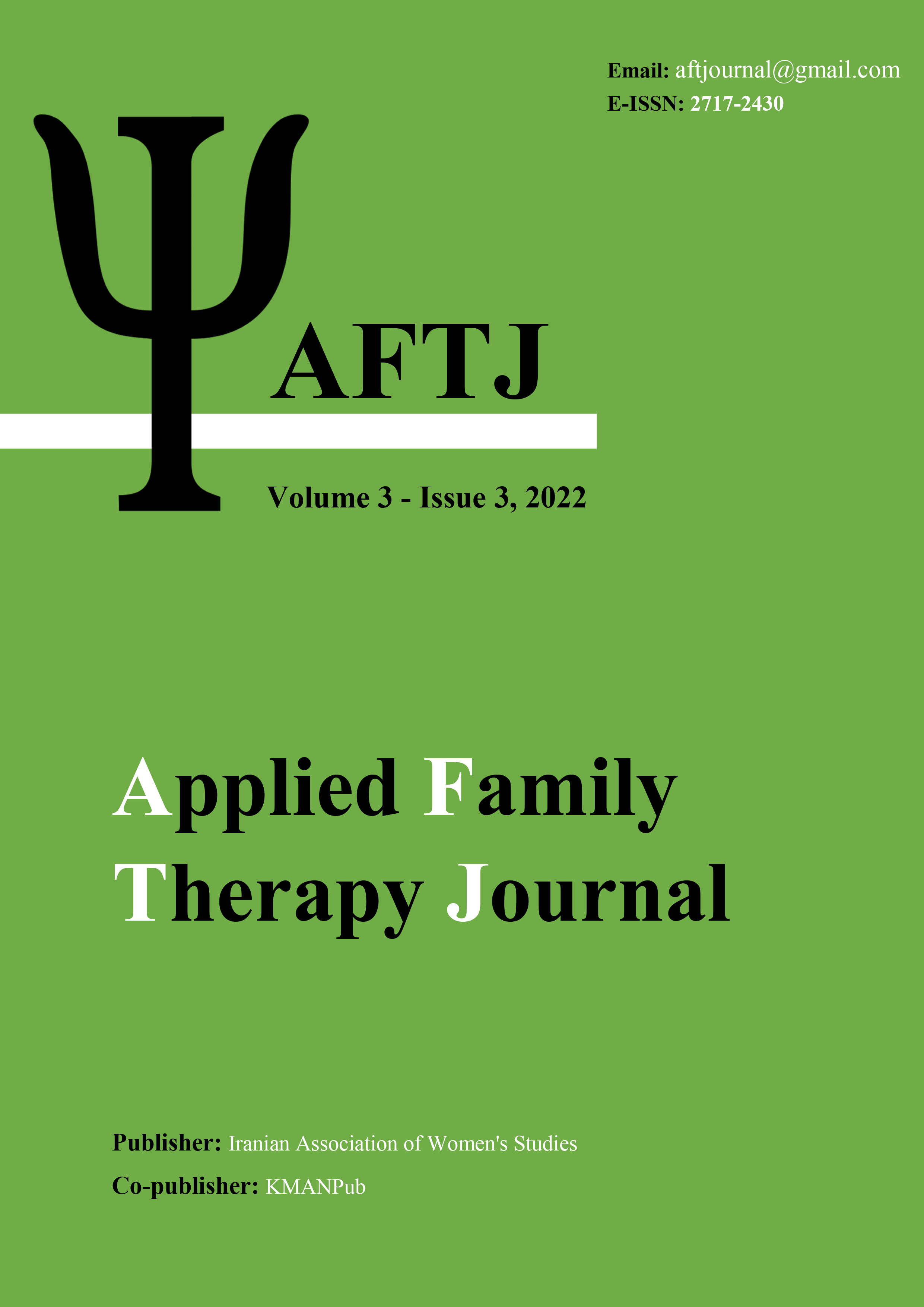A Structural model for predicting couples' emotional divorce based on attachment styles, metacognitive beliefs and emotional regulation strategies mediated by marital burnout in married women
Keywords:
Emotional divorce; Metacognitive beliefs; Attachment styles; Marital burnoutAbstract
Aim: The aim of this study was to present a model for predicting couples' emotional divorce based on attachment styles and metacognitive beliefs mediated by marital burnout in married women. Method: This descriptive-correlational exploratory study was consecutive and guided and the statistical population was 1854 married women referring to health centers in Tehran in 1398. Using multi-stage random sampling method, 375 women were selected based on sample power software. Were. The research instruments were Guttman (2008) Emotional Divorce Questionnaire, Collins and Reid's Revised Adult Attachment Scale (1990), Wells et al. (2004) and Pinez (1966) on Marital Burnout (1966). The desired sample was executed. In order to analyze the data, in addition to descriptive statistics, the statistical method of structural equations smartpls was used. Results: The findings of the results of standard direct path coefficients have shown that there is a significant relationship between metacognitive beliefs with emotional divorce and also the results of indirect path standard coefficients have shown that between metacognitive beliefs and emotional There is a relationship and intensity of marital burnout with the emotional divorce of married women. Conclusion: Based on the research findings, it is suggested to family counselors in order to create cohesion and create a conscious relationship to confront the psychological elements in order to improve the relationship between couples during treatment considerations.
Downloads
Downloads
Published
Issue
Section
License

This work is licensed under a Creative Commons Attribution-NonCommercial 4.0 International License.





















